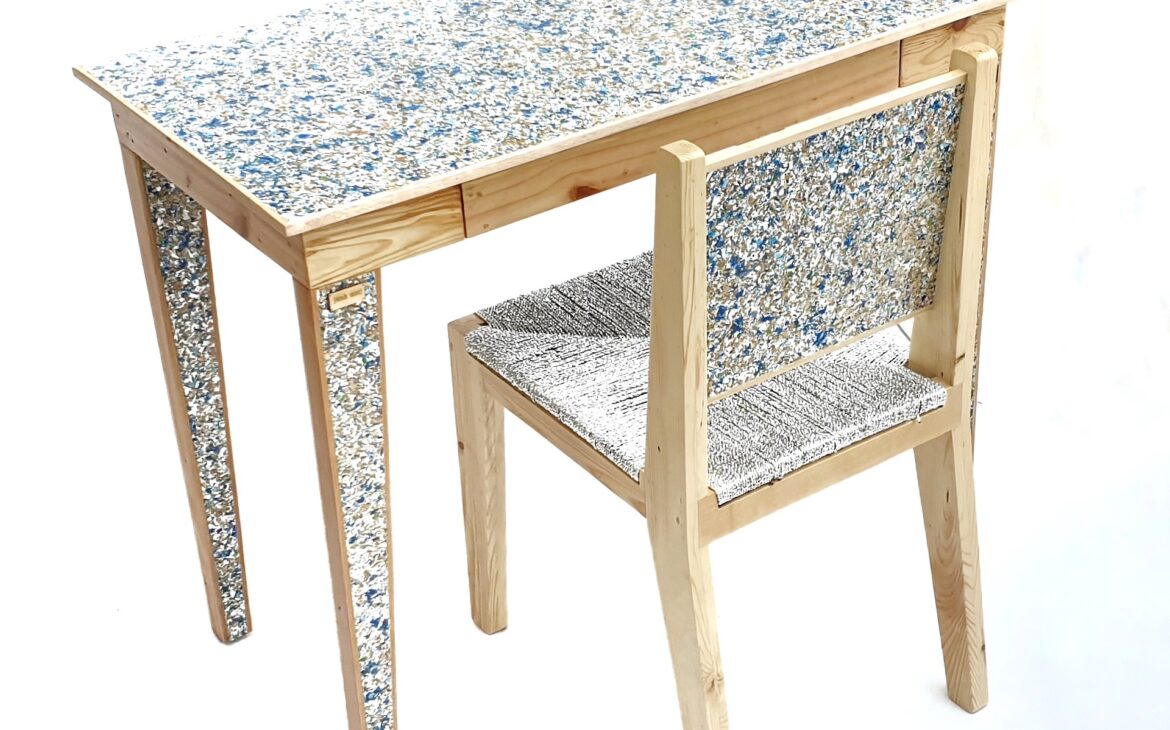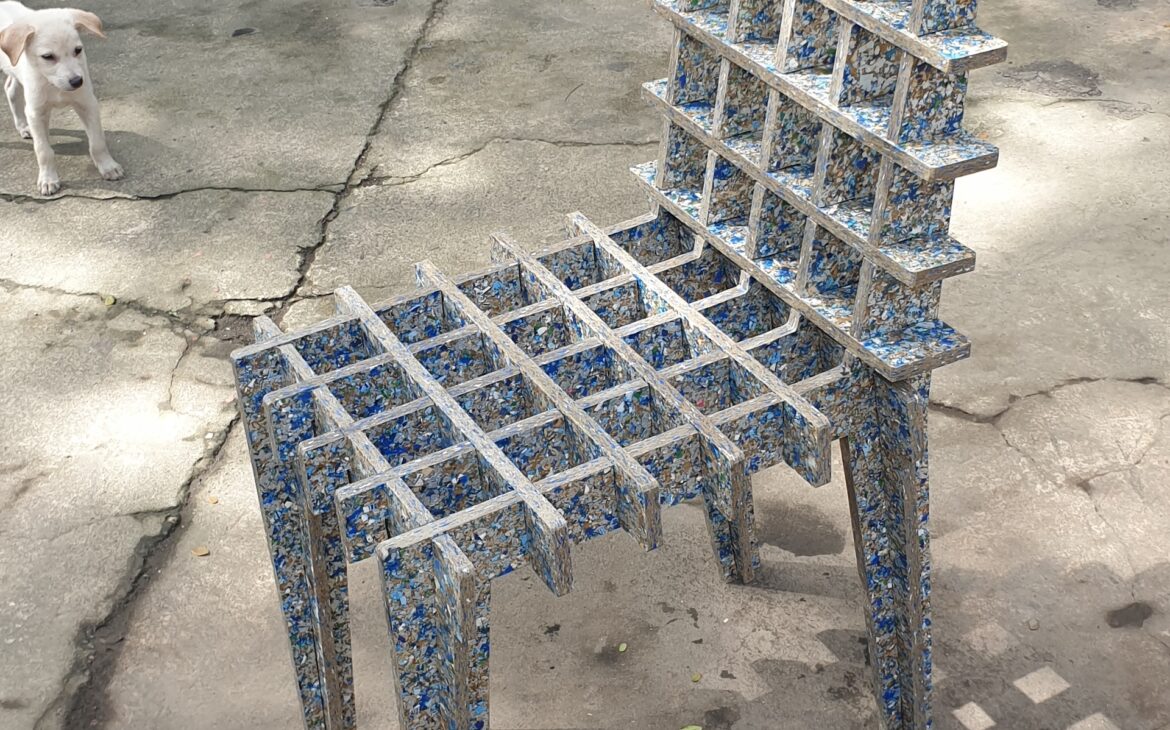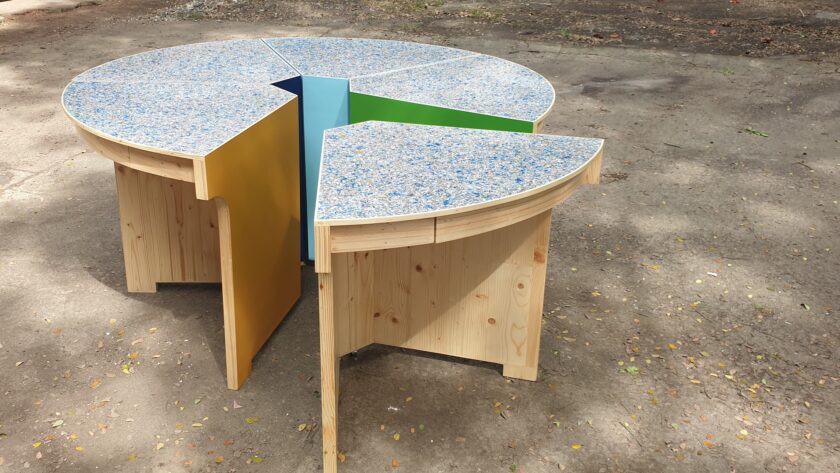In the Philippines, an enterprising furniture maker has released a range of furniture created using waste beverage cartons.
JunkNot’s first collection, “Araling Mesa at Upuan (Study Table and Chair)”, features pieces entirely made from recycled materials. The table and chair set used reclaimed wood pallets, 5kg of used beverage cartons and 500gm of plastic waste.
The range was made possible by packaging company Tetra Pak’s initiative launched last year to work with social enterprises and waste collection partners to repurpose used beverage cartons.
“Consumers care more about the environment now,” explains Michael Wu, Tetra Pak MD for Malaysia, Singapore, the Philippines and Indonesia. “Environmental problems are more palpable now than 10 or 15 years ago.”

JunkNot’s founder Willie Garcia says the company’s furniture pieces are reflective of the growing interior design trend to use recycled materials in furniture production.
“I am inspired to incorporate used beverage cartons boards in my design. Instead of incinerating our waste or it ending up in the ocean or in a landfill, with this upcycling solution, we can keep waste at home in a functional way.”
She says she is looking forward to creating more pieces from used beverage cartons.

Another partner in the Tetra Pak program is Rural Industrial Corporation, based in Bulacan, which is recycling used beverage cartons to create PolyAl Pro boards that can be used to construct wall partitions in homes and offices, cabinets, ceilings, counters for food stalls, signages, artwork and even heavy-duty truck beds.
The company has partnered with distributors, the Davao Southern Metal Enterprise and with DJ Concrete Solutions in Tacloban to offer eco-friendly alternatives to wood and cement boards. Comprising 70 per cent polyethylene, 25 per cent aluminium foil and 5 per cent mixed plastic waste, the PolyAl Pro boards are versatile and durable and feature a smooth facia.
Tetra Pak says repurposing trash is a popular way to make a positive environmental impact.
The company has also begun to engage with consumers directly. In key parts of Metro Manila, Project ReBins worked with Nestle and DMCI Homes to collect used beverage containers, soon after Covid-19-related movement restrictions were introduced throughout the metropolis.
That partnership led to the recovery and repurposing of 100,000 containers – equivalent to about 1 tonne – collected from some 13,500 homes.
Tetra Pak says it is also working on developing sustainable packaging made solely from plant-based materials that are fully renewable, fully recyclable and carbon-neutral.
Meanwhile, in Indonesia, DJ Peggy Gou and designer Daniel Mitchell have teamed up to create chairs crafted from 20kg of plastic trash.



